Pro Plays 36 Holes In Under 80 Minutes To Win British Speedgolf Championship
Buckinghamshire professional Luke Willett took the British Speedgolf title
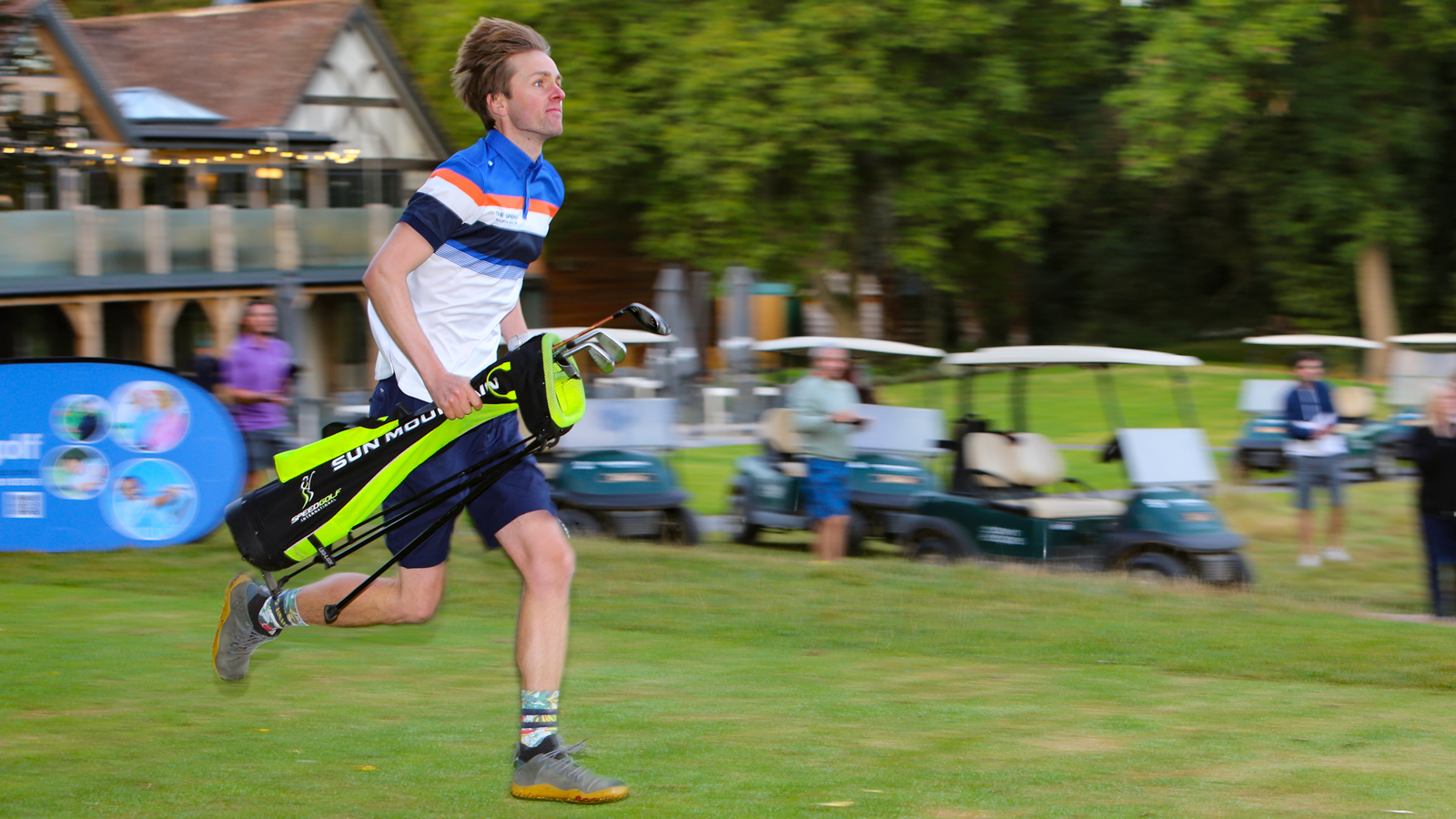

British Speedgolf Championship: Buckinghamshire professional Luke Willett took the title from Kent amateur George Boxall.
Pro Plays 36 Holes Under 80 Minutes To Win British Speedgolf Championship
PGA professional Luke Willett won the British Open Speedgolf Championship at The Springs Golf Club near Wallingford in Oxfordshire.
Contested over two rounds on two successive mornings, the 19th and 20th September, Luke Willett completed the first round in 37 minutes 59 seconds with a gross score of 77 (five-over-par), and the second 18 in 39 minutes 57 seconds with a gross score of 82.
His total Speedgolf score over the two days was 236:56 – That score is calculated by adding the time taken and the gross score together.
With score and speed to consider, Speedgolf requires both athletic and golfing ability.
Watch: GM Editor Mike Harris recently played Speedgolf with Luke Willett-
Get the Golf Monthly Newsletter
Subscribe to the Golf Monthly newsletter to stay up to date with all the latest tour news, equipment news, reviews, head-to-heads and buyer’s guides from our team of experienced experts.
Participants have to run as quickly as possible between shots but not be too breathless to make a good swing or stroke upon reaching their ball.
Finding the optimum pace to maximise golf performance is the key challenge and consistency is crucial.
Players use fewer clubs (up to 7) which are carried by hand or in a lightweight golf bag.
Scorers in golf buggies tracked the field of 17 Speedgolfers at The Springs, keeping pace with the competitors who moved quickly, dispensing with the usual golfing routines and practice swings – taking golf back to its basics.
Kent’s George Boxall finished second in the championship to Willett.
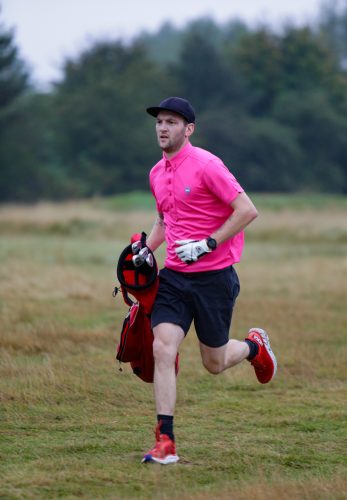
He was slightly quicker than the Buckinghamshire professional with a total time of just over 75 minutes.
But Boxall’s total gross score was six higher than Willett’s, demonstrating the importance of golfing prowess to Speedgolf success.
Former World Speedgolf champion Rob Hogan from Ireland was a close third.
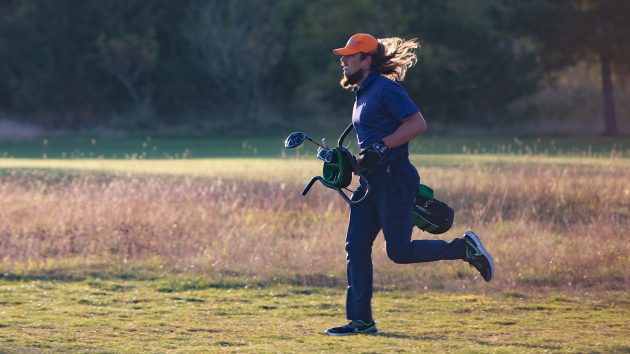
Scott Richardson from Buckinghamshire made history by becoming the first amputee competitor in the world to compete in a national Speedgolf Championship.
He completed his first 18 holes in under 75 minutes and the next morning thrilled again by going even faster in 71 minutes, 16 seconds.
Scott has been playing golf for 10 years, always as a leg below the knee amputee following a racing accident whilst competing in the Isle of Man TT races back in 2000.
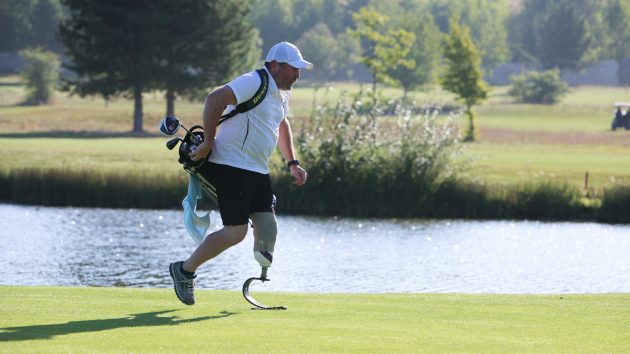
His best round of the two days was his first where he shot 98 strokes in 74 minutes 40 secs giving him a Speedgolf score of 172:40 – a target for other amputee golfers who fancy giving Speedgolf a try.
The youngest in the field was William Kay, aged 18, who delivered two sub 50-minute rounds and is clearly one to watch in the future.
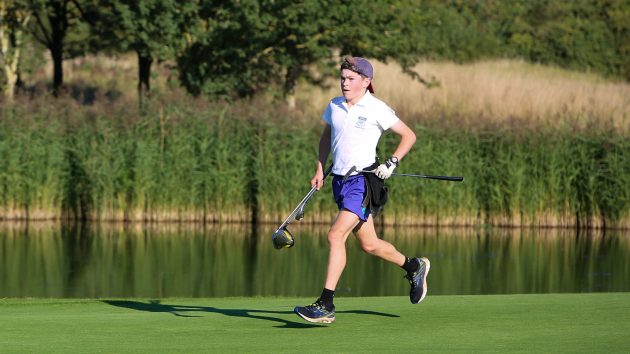
There was no prize purse for the winners at The Springs GC, simply the opportunity to become a British Champion and to enjoy an unforgettable experience.
Speedgolf is much more physically demanding than traditional golf, but it also delivers greater fitness benefits, whilst addressing the issue of pace of play head on.
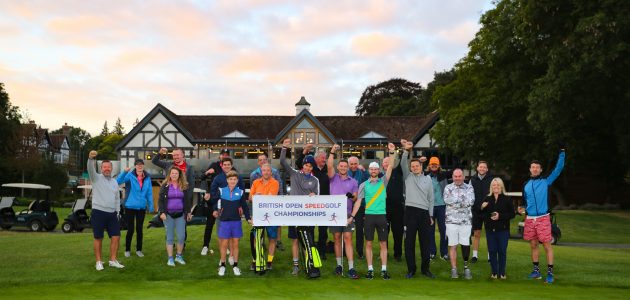
More general information on the sport can be found on the British Speedgolf website.

Fergus is Golf Monthly's resident expert on the history of the game and has written extensively on that subject. He has also worked with Golf Monthly to produce a podcast series. Called 18 Majors: The Golf History Show it offers new and in-depth perspectives on some of the most important moments in golf's long history. You can find all the details about it here.
He is a golf obsessive and 1-handicapper. Growing up in the North East of Scotland, golf runs through his veins and his passion for the sport was bolstered during his time at St Andrews university studying history. He went on to earn a post graduate diploma from the London School of Journalism. Fergus has worked for Golf Monthly since 2004 and has written two books on the game; "Great Golf Debates" together with Jezz Ellwood of Golf Monthly and the history section of "The Ultimate Golf Book" together with Neil Tappin , also of Golf Monthly.
Fergus once shanked a ball from just over Granny Clark's Wynd on the 18th of the Old Course that struck the St Andrews Golf Club and rebounded into the Valley of Sin, from where he saved par. Who says there's no golfing god?
-
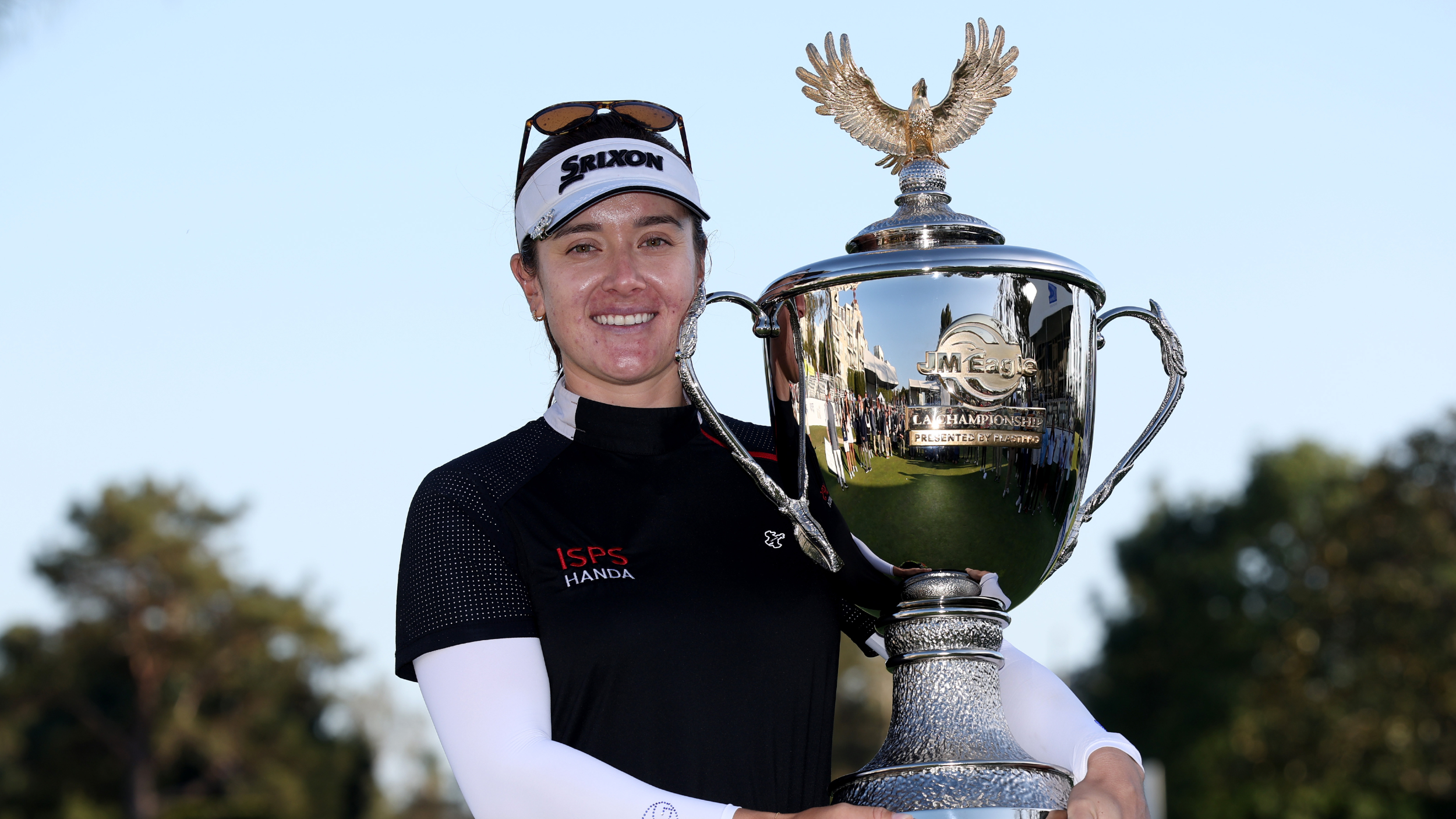 JM Eagle LA Championship Prize Money Payout 2025
JM Eagle LA Championship Prize Money Payout 2025The LPGA Tour heads to California for the JM Eagle LA Championship, where the largest prize money payout of the season so far is on the table
By Mike Hall
-
 Corales Puntacana Championship Prize Money Payout 2025
Corales Puntacana Championship Prize Money Payout 2025The PGA Tour’s latest opposite field event features an attractive prize money payout and some former champions in the field
By Mike Hall
-
 Is This FootJoy's Most Exciting New Golf Shoe In Years?
Is This FootJoy's Most Exciting New Golf Shoe In Years?Dan Parker discusses whether the new FootJoy Fuel golf shoe has the potential to be FootJoy's most exciting to date...
By Dan Parker
-
 Governing Bodies Crack Down On Distance As Driver Shaft Lengths Limited
Governing Bodies Crack Down On Distance As Driver Shaft Lengths LimitedThe R&A and USGA have introduced a new local rule to ensure professionals and elite amateurs do not use 48-inch driver shafts
By Elliott Heath
-
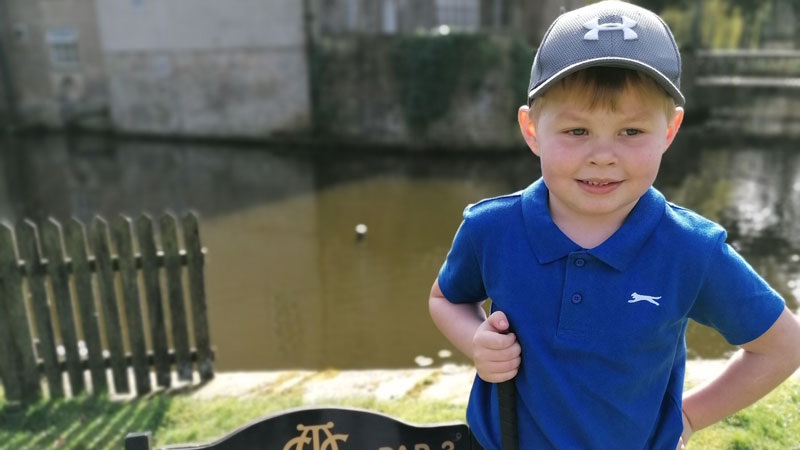 Five-Year-Old Prodigy Raising Money And Awareness For Organ Donation
Five-Year-Old Prodigy Raising Money And Awareness For Organ DonationGeorge is taking on the challenge to raise money and awareness for organ donation
By Andrew Wright
-
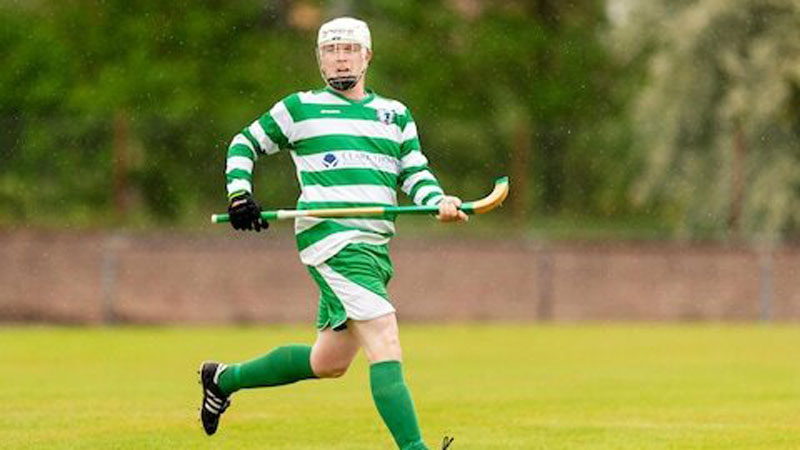 Robert MacIntyre Returns To Shinty After Ryder Cup Disappointment
Robert MacIntyre Returns To Shinty After Ryder Cup DisappointmentThe left-hander has been in action for his local shinty side, Oban Celtic
By Andrew Wright
-
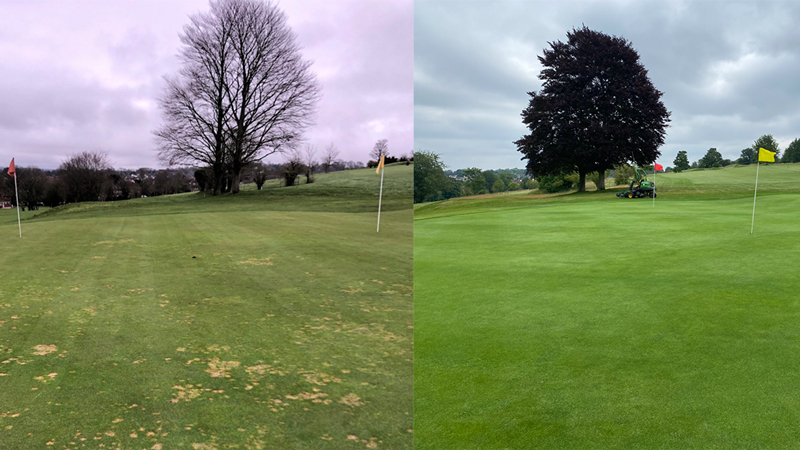 "A Real Kick In The Teeth" - Greenkeeper After "Embarrassment" Course Comments
"A Real Kick In The Teeth" - Greenkeeper After "Embarrassment" Course CommentsWe chat to James Tibbles, head greenkeeper at Andover GC, after he was subject to negative comments on the course's condition
By Elliott Heath
-
 Tiger Woods' 2002 Backup Putter Sells For $393,300
Tiger Woods' 2002 Backup Putter Sells For $393,300Tiger Woods' 2002 Backup Putter Sells For $393,300
By Matt Cradock
-
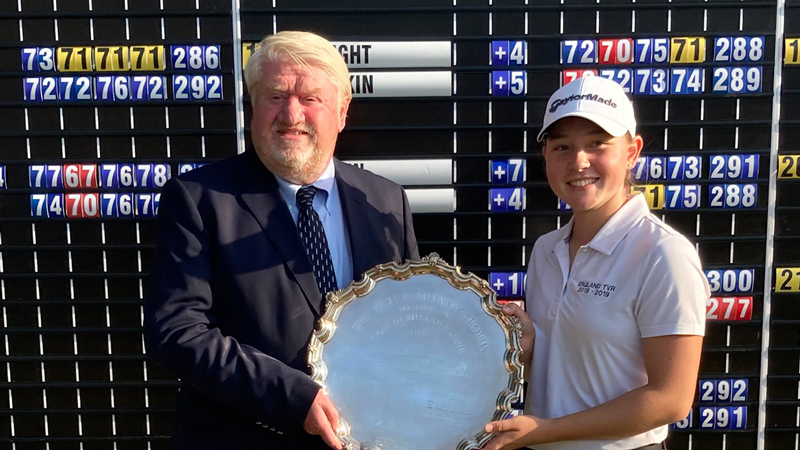 Olivia Lee Wins 2021 Peter McEvoy Trophy
Olivia Lee Wins 2021 Peter McEvoy TrophyOlivia Lee has become the first female to win the historic Peter McEvoy Trophy.
By Dan Parker
-
 Helen Skelton Wins Slingsby's Golf Academy To Compete At Wentworth
Helen Skelton Wins Slingsby's Golf Academy To Compete At WentworthThe TV presenter won the Slingsby play-off, and will now compete at the BMW PGA Championship Celebrity Pro-Am
By Ryan Dabbs